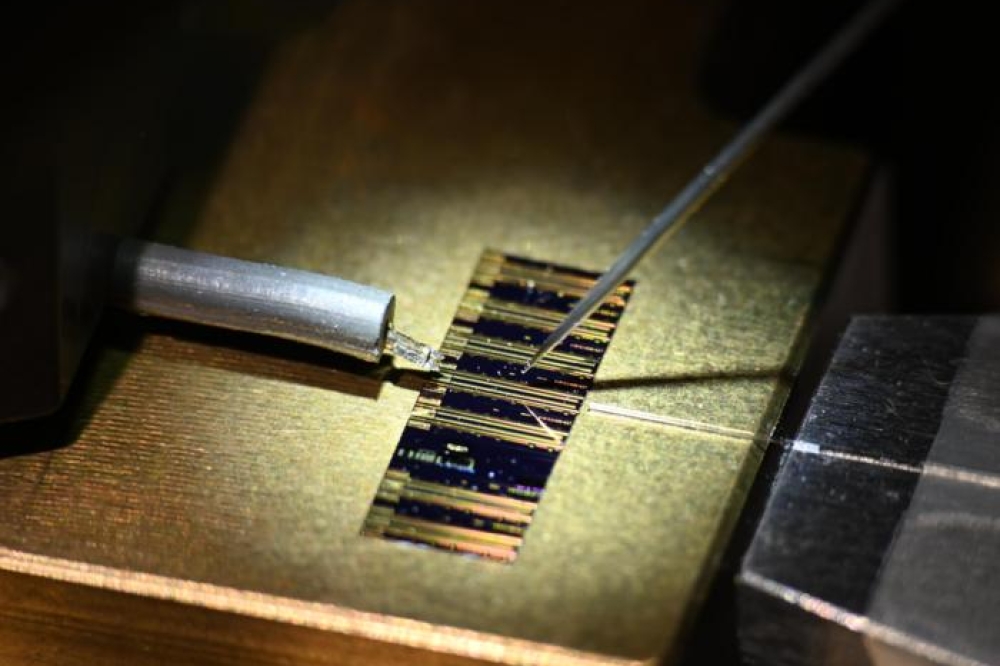News Article
Spectrolab non-concentrator cell raises the bar
The Boeing subsidiary's III-V multi-junction solar cell converted 37.8 percent of solar energy into electricity. That's more than any other ground-based solar cell without lenses or mirrors
Spectrolab has achieved a solar cell efficiency of 37.8 percent without concentration. This is the common practice of having lenses or mirrors focus solar rays on the cells.
This world record in ground-based solar cell efficiency was verified by the U.S. Department of Energy's National Renewable Energy Laboratory in Golden, Colorado.
The cells use a new class of high-efficiency multi-junction solar cell, created from two or more compound semiconductors, leveraging Boeing technology that makes such materials more reliable.
"We expect this solar cell technology will have significant benefits for space, ground-based, and sensor applications," says Troy Dawson, president of Spectrolab.
Spectrolab believes this solar cell technology can attain higher levels of efficiency, "possibly more than 45 percent even under low concentrations," according to Nasser Karam, the company’s vice president for advanced technology.
Spectrolab, which is part of the Boeing Defence, Space & Security unit, is a merchant supplier of high-efficiency multi-junction solar cells and panels for concentrated photovoltaic and spacecraft power systems. Spectrolab offers sensors and solar simulators, in addition to being a provider of airborne searchlights.
This world record in ground-based solar cell efficiency was verified by the U.S. Department of Energy's National Renewable Energy Laboratory in Golden, Colorado.
The cells use a new class of high-efficiency multi-junction solar cell, created from two or more compound semiconductors, leveraging Boeing technology that makes such materials more reliable.
"We expect this solar cell technology will have significant benefits for space, ground-based, and sensor applications," says Troy Dawson, president of Spectrolab.
Spectrolab believes this solar cell technology can attain higher levels of efficiency, "possibly more than 45 percent even under low concentrations," according to Nasser Karam, the company’s vice president for advanced technology.
Spectrolab, which is part of the Boeing Defence, Space & Security unit, is a merchant supplier of high-efficiency multi-junction solar cells and panels for concentrated photovoltaic and spacecraft power systems. Spectrolab offers sensors and solar simulators, in addition to being a provider of airborne searchlights.































